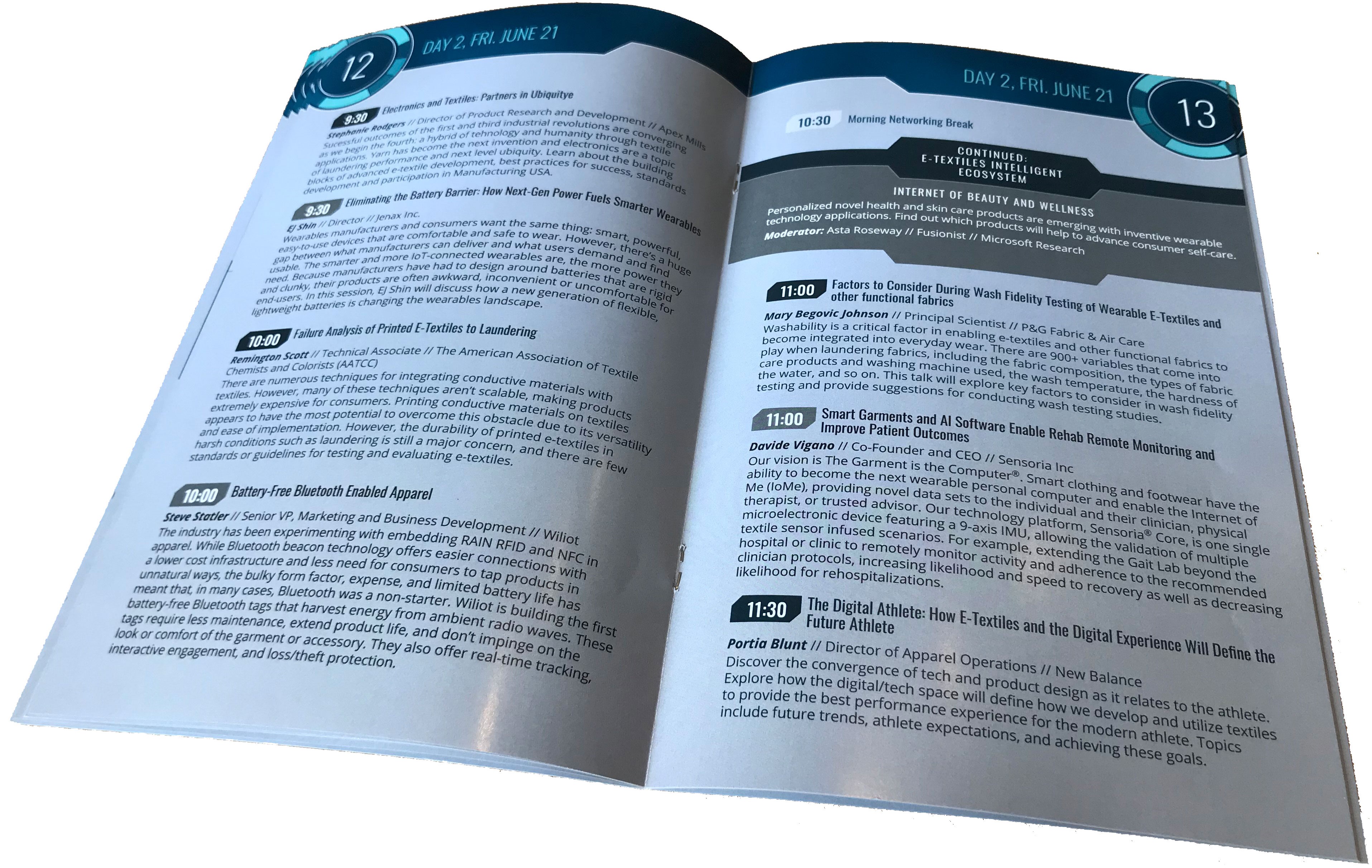I had the opportunity to attend WEARCon 2019 in the Seattle area. WEARCon hosted a mix of speakers and presenters that represented textiles, hardware, regulatory, design, and product companies. With back-to-back 30 minute talks in a single large conference room and short networking breaks sprinkled throughout, there was a lot to hear and see.
Wearable Companies
Embr Labs
Embr Labs is a Boston-based company with a consumer wrist-worn wearable product. Their product puts out waveforms to receptors in the wrist that can cause the perception of warming or cooling for the body by up to 5 degrees F.
At WEARCon, they presented on the potential of temperature products in the wellness market and how startups can work with corporate partners. While their product is not a medical device per se, it holds the potential for several medical-adjacent applications like anxiety, hot flashes, and insomnia. It’s a really exciting and unique device, so we’re looking to hear more about them in the future.
CareWear
CareWear is a Reno based company with a patch based medical device that uses an array of purple LEDs to promote healing for tissue trauma. They focus mostly on the athletic market, holding over 50 patents in the areas of photobiomodulation and pain relief.
Their product features a well-designed system with rechargeable patches and an IoT controller. Each patch can be used around 20 times with proper charging and handling. In a world of increased awareness around drug-related pain and injury relief, CareWear seems to be in a good space at the right time.
Sensoria
Sensoria is a company in Redmond, founded by a couple former Microsoft employees. They produce smart fitness and health gear that uses a smart “brain” that can be adapted and customized for different applications. For example, they presented a sock system that is currently optimized to provide feedback for Parkinson’s patients to help with mobility.
Their technology has many integration possibilities, with lots of applications in the overlapping sections of sports, health, and smart fashion.
Suppliers
Jenax
From South Korea, Jenax showcased their impressive flexible batteries. Their batteries are very customizable based on flexibility needs and power requirements, and are comprised of a gel that reduces leakage risks if the batteries get damaged. There are lots of potential integrations for clothing, medical devices, and more.
Wiliot
Wiliot presented one of the coolest tech things at the show: an energy harvesting battery-free Bluetooth connection device. It uses a stamp-size patch (similar to RFID) with receiver and transmitting antennas and an ARM MCU, at a target cost of ~$1. It utilizes a non-pairing protocol, all in encrypted data packets, and has sensors for temperature, weight/interaction, and an additional GPIO for customized sensing input.
This device has applications for supply chain management, interaction tracking with clothing or other retail store products, and many more. Wiliot is currently piloting trials with large customers and hopes to roll out a more broadly available product offering in late 2020.
There are lot of new and exciting developments in the industry of wearable technology. WEARCon was an excellent opportunity to hear about these developments and learn about what may be available in the near future.
Simplexity has worked on wearable projects in the past, such as the Microsoft Band and Senaptec Strobe Eyewear, and is currently working on confidential wearable products in both the consumer and medical markets. If you are looking for help designing a new wearable product, please contact us here.


